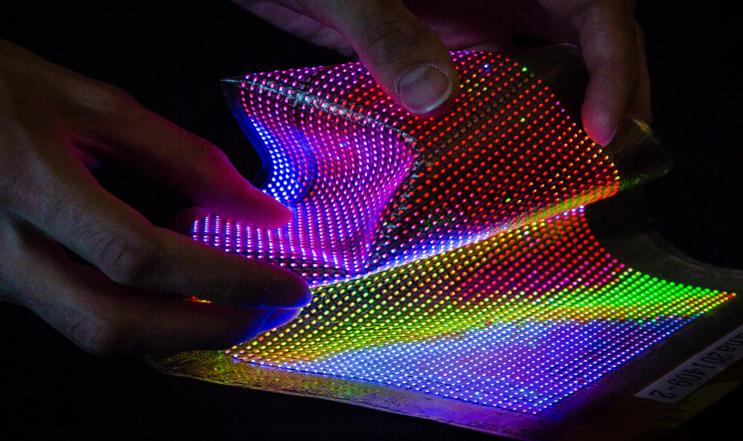MSc thesis project proposal
[2022] Ultra-Flexible Active-Matrix Electrophysiology Arrays for Neural Interfacing
Project outside the university
Holst CentreImproved neural interfacing promises to dramatically improve the quality of current diagnostics, reduce side effects of treatments, or open up the potential for the realization of entirely new diagnostics and treatments. Spatially distributed read-out and stimulation of tissue require metal electrode arrays. Current solutions have limited precision and probe either small area with high resolution or large area with low resolution. Additionally, electrical contact is also limited since today’s solutions are not mechanically flexible enough to conformably follow the convoluted sulcal and gyral anatomy, i.e. grooved and ridged structure, of the brain.
Holst Centre’s ultra-flexible active-matrix electrode array technology offers high precision and large area. Developed initially for foldable display applications, this student project aims to use the technology to improve neural interfacing. More specifically, the project focuses on the development and characterization of active-matrix TFT arrays on foil with three-dimensional conformability.
Assignment
As a team member your tasks will be:
- Knowledge acquisition through literature survey, discussion with other team members, and internal seminars;
- Performing realization and/or electrical characterization in cleanroom(s) and electrical laboratories;
- Analysis and presentation of experimental data (electrical and mechanical testing);
- Documentation of results in a technical report; and
- Presentation of results in internal seminars
Requirements
A master student with a relevant background ranging from physics, chemistry, nanotechnology, biomedical engineering, electrical engineering, materials science, etc. with both theoretical and experimental skills.
You have good communication skills in English.
Proactive, independent but also a team player.
Experience with electronics is desired.
Contact
dr. Vasiliki Giagka
Bioelectronics Group
Department of Microelectronics
Last modified: 2025-02-13
